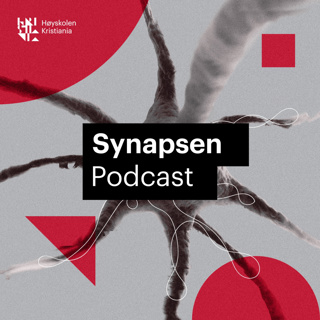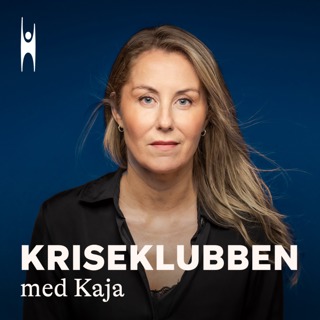
Are We Alone? Martin Rees on Aliens, The Fermi Paradox & The Fate of Humanity
What can a lifetime of scientific discovery teach us about the universe—and ourselves? In this wide-ranging conversation, Michael Shermer sits down with Lord Martin Rees, renowned cosmologist, astrophysicist, and former Astronomer Royal, to reflect on the forces that shape scientific success, from personal luck to cultural context. Rees shares insights on the mysteries of cosmology, the search for extraterrestrial life, and the paradoxes that still puzzle humanity. Rees also shares intimate reflections on his friend and Cambridge colleague Stephen Hawking, thoughts on Fermi’s Paradox, and why some truths may forever lie beyond human comprehension. The discussion also turns toward urgent global issues: the promise and peril of AI, ethical dilemmas in a rapidly advancing world, and how religion and terrorism could shape our future.
22 Jul 1h 5min

The True Cost of Conviction
When you are faced with a decision, do you consider the best outcome, or do you consider your deepest values about which actions are appropriate? Steven Sloman contrasts these two primary strategies for making decisions: consequentialism or prioritizing one’s sacred values. He argues that, while both modes of decision making are necessary tools for a good decision maker, people err by deploying sacred values more often than they should, especially when it comes to sociopolitical issues. As a result, we oversimplify, grow disgusted and angry, and act in ways that contribute to social polarization. Drawing on historical and current examples of the two decision-making strategies in action, Sloman provides a thorough overview of the psychology of decision making, including work on judgment, conscious and unconscious decision-making processes, the roles of emotion, and even an analysis of habit and addiction. Steven Sloman has taught at Brown University since 1992. He is the author of Causal Models and a coauthor of The Knowledge Illusion (with Phil Fernbach). His new book is The Cost of Conviction: How Our Deepest Values Lead Us Astray.
15 Jul 1h 18min

Debra Soh and Michael Shermer at FreedomFest 2025
Michael Shermer in conversation with Debra Soh at FreedomFest 2025 in Palm Springs, CA. Video courtesy of FreedomFest. Additional FreedomFest videos can be viewed on CiVL.
14 Jul 19min

Douglas Murray on Hamas, Iran, and the Collapse of the Two-State Solution
Drawing from intensive on-the-ground reporting in Israel, Gaza, and Lebanon, Douglas Murray places the latest violence in its proper historical context. He takes listeners on a harrowing journey through the aftermath of the October 7 massacre, piecing together the exclusive accounts from victims, survivors, and even the terrorists responsible for the atrocities. Douglas Murray is a bestselling author and journalist. His books include the Sunday Times number-one bestsellers The War on the West: How to Prevail in the Age of Unreason; The Strange Death of Europe: Immigration, Identity and Islam; and The Madness of Crowds: Gender, Race and Identity. He has been Associate Editor and regular writer at The Spectator since 2012, and contributes to other publications, including the Wall Street Journal, The Times, the Sunday Times, the Sun, the Mail on Sunday and the New York Post. A regular guest on broadcast news channels, he has also spoken at numerous universities, parliaments, and the White House. His new book is On Democracies and Death Cults.
8 Jul 1h 11min

Can Politics and Truth Coexist?
Do any of us really care about truth when it comes to politics? Should we? In a world of big lies, denialism, and conspiracy theories, democracies are experiencing two interlocked crises: a loss of confidence in democracy itself and the growing sense among many that politics is only about power—not truth. In his new book, Michael Patrick Lynch argues that truth not only can—but must—matter in politics. He shows why truth is an essential democratic value—a value we need to sustain our democratic way of life—and how it can be strengthened. Despite evidence that people are rarely motivated by truth when it comes to politics, Lynch argues that this isn’t inevitable. Contrary to the belief of many, political beliefs can be true or false. But if democracy is to continue to be a space of reason and not just an arena of power, we must build a better infrastructure of knowledge, including stronger schools and media, and renew our commitment to science and history. Michael Patrick Lynch is Provost Professor of the Humanities and Board of Trustees Distinguished Professor of Philosophy at the University of Connecticut. Lynch is the author or editor of ten books, including Know-it-All Society, The Internet of Us, Truth as One and Many, and the New York TimesSunday Book Review Editor’s pick, True to Life. He has spoken at TED and SXSW. In 2019 he was awarded The George Orwell Award, which recognizes writers who have made outstanding contributions to the critical analysis of public discourse. His new book is On Truth in Politics: Why Democracy Demands It.
1 Jul 1h 8min

Michael Egnor X Christof Koch X Michael Shermer | A Debate on the Mind, Soul, and the Afterlife
A debate on the mind, soul, consciousness, and the afterlife. Michael Egnor, MD, is Professor of Neurosurgery and Pediatrics at the Renaissance School of Medicine at Stony Brook University. He received his medical degree from the College of Physicians and Surgeons at Columbia University and trained in neurosurgery at the University of Miami. He has been on faculty at Stony Brook since 1991. He is the neurosurgery residency director and has served as the director of pediatric neurosurgery and as vice-chairman of neurosurgery at Stony Brook Medicine. He has a strong interest in Thomistic philosophy, philosophy of mind, neuroscience, evolution and intelligent design, and bioethics and has published and lectured extensively on these topics. His new book is The Immortal Mind: A Neurosurgeon’s Case for the Existence of the Soul. Christof Koch is a neuroscientist at the Allen Institute and at the Tiny Blue Dot Foundation, the former president of the Allen Institute for Brain Science, and a former professor at the California Institute of Technology. Author of four previous titles—The Feeling of Life Itself: Why Consciousness Is Widespread but Can’t Be Computed, Consciousness: Confessions of a Romantic Reductionist, and The Quest for Consciousness: A Neurobiological Approach—Koch writes regularly for a range of media, including Scientific American. His latest book is Then I Am Myself the World.
25 Jun 1h 48min

The Science Behind Menopause
When award-winning science writer Amy Alkon was blindsided by her first hot flash, it kicked off a cascade of symptoms—drenching night sweats, insomnia, and a rage she couldn’t explain. But what shocked her more was how little real science her doctor had to offer. In this episode, Alkon shares what she uncovered in her deep dive into the research on menopause and perimenopause—the critical yet often neglected years leading up to menopause when millions of women are misdiagnosed, dismissed, or simply told to “wait it out.” Drawing from her new book Going Menopostal, she explains why so much medical advice is still based on outdated or inadequate evidence, and what women can do about it. Alkon breaks down complex science with clarity, humor, and a healthy dose of skepticism, giving listeners the tools they need to ask better questions, advocate for themselves, and get the care they deserve. Whether you’re in the thick of it or simply want to be prepared, or want to support your loved ones going through menopause, this episode will leave you informed, empowered, and maybe even laughing. Amy Alkon is an independent investigative science writer specializing in “applied science”—using scientific evidence to solve real-world problems. Alkon critically evaluates and synthesizes research across disciplines and then translates it into everyday language, empowering regular people to make scientifically informed decisions for the best of their health and well-being. For 25 years, Alkon wrote an award-winning, science-based nationally syndicated advice column, distributed by Creators. She is the author of five books—most recently, her “science-help” book Unf*ckology: How to Live with Guts and Confidence (St. Martin’s Press, 2018). She is the past President of the Applied Evolutionary Psychology Society, which brings evolutionary science to public policy, education, and medicine. Her new book is Going Menopostal: What You (And Your Doctor) Need to Know About the Real Science of Menopause and Perimenopause.
17 Jun 1h 19min

Andrew Doyle: Trapped Between Woke Dogma and Right-Wing Populism
What began as a call for justice has, in many cases, become an engine of conformity. In this searching conversation, Andrew Doyle (author, satirist, and cultural critic) joins Michael Shermer to unpack the trajectory of the woke movement: from its roots in anti-bigotry and awareness to its current entanglement with censorship, identitarian dogma, and ideological rigidity. Drawing on his new book, The End of Woke Doyle traces the intellectual history of contemporary activism, explores the authoritarian impulses emerging on both the left and the right, and makes the case for a return to classical liberalism as a defense against escalating cultural tribalism. Together, Shermer and Doyle explore themes ranging from the legacy of Shakespeare and Milton, the tension between equality and meritocracy, and the broader sociopolitical dynamics shaping public discourse. This episode offers a sharp, historically grounded analysis of one of the defining cultural shifts of our time—and a call to revive liberal principles in the face of rising ideological orthodoxy. Andrew Doyle is a writer, satirist and political commentator. He was formerly a Visiting Research Fellow at Queen’s University Belfast, and a lecturer at Oxford University where he completed his doctorate in Renaissance Literature. He is the creator of satirical character Titania McGrath, under whose name he has written two books: Woke: A Guide to Social Justice and My First Little Book of Intersectional Activism, both published by Little, Brown. Titania McGrath has over half a million followers on X. His previous books include Free Speech and Why it Matters and The New Puritans: How the Religion of Social Justice Captured the Western World. His new book is The End of Woke: How the Culture War Went Too Far and What to Expect from the Counter-Revolution.
10 Jun 2h 13min




















